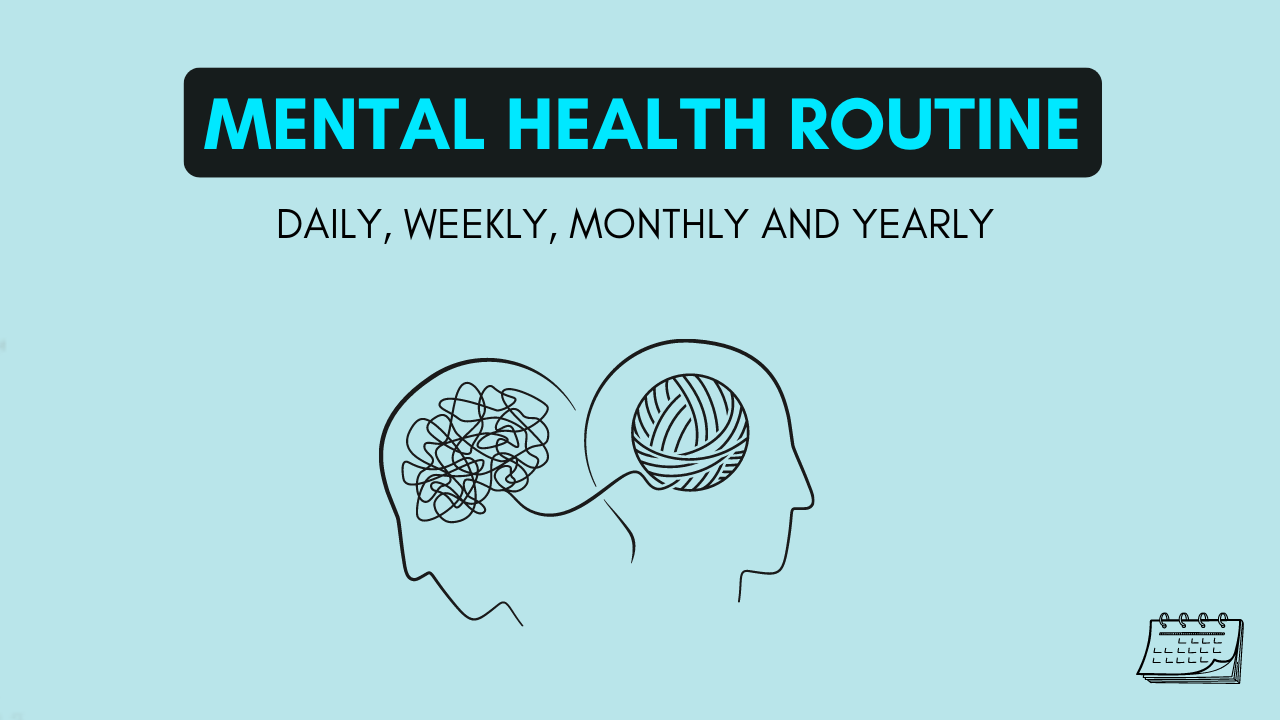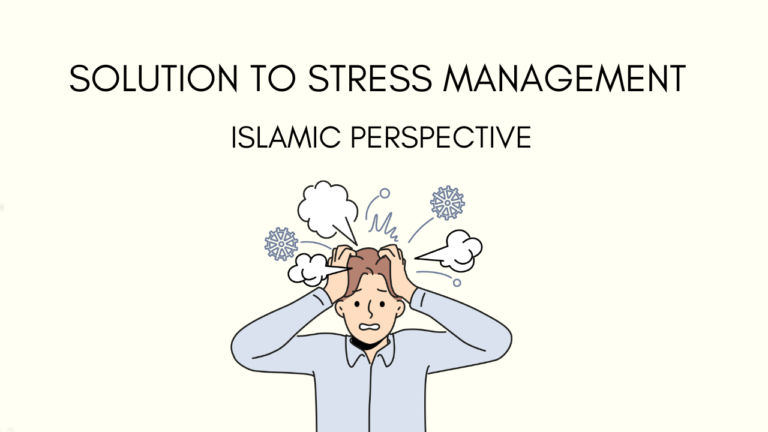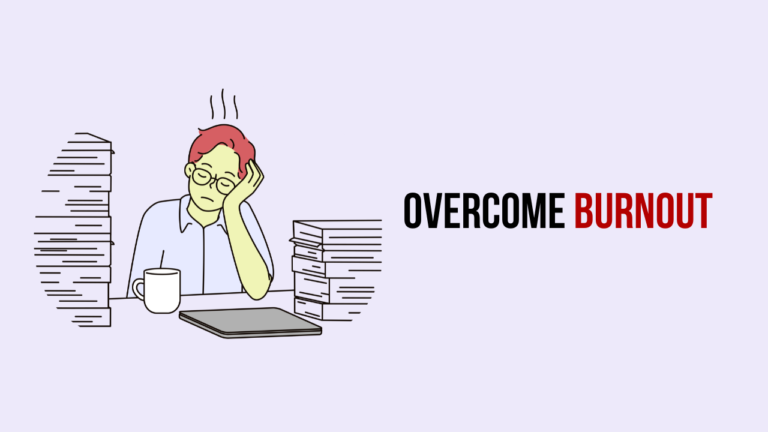Maintaining good mental health is essential for living a balanced and peaceful life as a Muslim. Islam provides us with guidance and practical steps to strengthen both our spiritual and mental well-being. This blog will offer the ultimate solution for mental health based on Islamic teachings, providing practical examples and routines you can incorporate into your daily, weekly, monthly, and yearly schedules.
Table of Contents
Daily Routine for Mental Health (Islamic Perspective)
- Start Your Day with Fajr and Dhikr
- Begin your day with the Fajr prayer. Fajr is a time of barakah (blessing) and sets a positive tone for the rest of your day. After prayer, spend a few minutes engaging in dhikr (remembrance of Allah), such as reciting SubhanAllah, Alhamdulillah, and Allahu Akbar.
- Practical example: After Fajr, sit quietly for five minutes, recite سُبْحَانَ اللَّهِ (SubhanAllah) 33 times, الْحَمْدُ لِلَّهِ (Alhamdulillah) 33 times, and اللَّهُ أَكْبَرُ (Allahu Akbar) 34 times. This remembrance calms the heart and brings inner peace, reducing daily stress and strengthening your mental health.
- Seek Refuge from Negative Thoughts
- Whenever you feel overwhelmed by stress, recite the dua that the Prophet Muhammad (PBUH) taught us:
- اللَّهُمَّ إِنِّي أَعُوذُ بِكَ مِنَ الْهَمِّ وَالْحَزَنِ، وَالْعَجْزِ وَالْكَسَلِ
“O Allah, I seek refuge in You from anxiety and grief, weakness and laziness.” (Sahih Bukhari) - Practical example: Say this dua when you feel anxious or mentally drained. Remembering Allah through dua connects us to the One who controls everything, easing our mental burden.
- Stay Connected to the Quran
- The Quran is a source of healing for the mind and soul. Even if it’s just a few verses, reading or listening to the Quran daily can improve mental health. Allah (SWT) says:وَنُنَزِّلُ مِنَ الْقُرْآنِ مَا هُوَ شِفَاءٌ وَرَحْمَةٌ لِّلْمُؤْمِنِينَ
“And We send down of the Quran that which is a healing and a mercy for the believers.” (Surah Al-Isra, 17:82) - Practical example: Dedicate at least 10 minutes daily to reciting the Quran. Reflect on its meanings, and it will help bring peace to your mind and soul.
- The Quran is a source of healing for the mind and soul. Even if it’s just a few verses, reading or listening to the Quran daily can improve mental health. Allah (SWT) says:وَنُنَزِّلُ مِنَ الْقُرْآنِ مَا هُوَ شِفَاءٌ وَرَحْمَةٌ لِّلْمُؤْمِنِينَ
- Gratitude and Positive Thinking (Shukr)
- One of the best ways to combat negative thoughts and stress is through gratitude. The Prophet Muhammad (PBUH) said:مَنْ أَصْبَحَ مِنْكُمْ آمِنًا فِي سِرْبِهِ، مُعَافًى فِي جَسَدِهِ، عِنْدَهُ قُوتُ يَوْمِهِ، فَكَأَنَّمَا حِيزَتْ لَهُ الدُّنْيَا
“Whoever among you wakes up feeling safe in his family, healthy in his body, and has enough food for his day, it is as if he has acquired the entire world.” (Sunan al-Tirmidhi, Hasan) - Practical example: Every night before you sleep, reflect on three things you are grateful for, and thank Allah for them. Focusing on blessings improves mental health and cultivates a positive outlook on life.
- One of the best ways to combat negative thoughts and stress is through gratitude. The Prophet Muhammad (PBUH) said:مَنْ أَصْبَحَ مِنْكُمْ آمِنًا فِي سِرْبِهِ، مُعَافًى فِي جَسَدِهِ، عِنْدَهُ قُوتُ يَوْمِهِ، فَكَأَنَّمَا حِيزَتْ لَهُ الدُّنْيَا
Weekly Routine for Mental Health (Islamic Perspective)
- Attend Jumu’ah Prayer
- Attending the Jumu’ah (Friday) prayer is not only an obligation for men but also a powerful spiritual booster. It helps refresh your connection to Allah and the community.
- Practical example: Prepare for Jumu’ah with full sincerity by performing ghusl, wearing clean clothes, and arriving early to the mosque. Use the khutbah (sermon) as a time to reflect on your mental and spiritual state.
- Connect with Family and Loved Ones
- Islam emphasizes maintaining ties of kinship (silat-ur-rahm). Connecting with loved ones helps reduce loneliness and creates a support system. The Prophet (PBUH) said:مَنْ أَحَبَّ أَنْ يُبْسَطَ لَهُ فِي رِزْقِهِ وَيُنْسَأَ لَهُ فِي أَثَرِهِ فَلْيَصِلْ رَحِمَهُ
“Whoever wishes for his provision to be increased and his life to be extended, let him uphold the ties of kinship.” (Sahih Bukhari) - Practical example: Set aside time each week to visit or call family members. Sharing your concerns and joy with them can significantly improve your mental health.
- Islam emphasizes maintaining ties of kinship (silat-ur-rahm). Connecting with loved ones helps reduce loneliness and creates a support system. The Prophet (PBUH) said:مَنْ أَحَبَّ أَنْ يُبْسَطَ لَهُ فِي رِزْقِهِ وَيُنْسَأَ لَهُ فِي أَثَرِهِ فَلْيَصِلْ رَحِمَهُ
- Engage in Charity (Sadaqah)
- Giving charity not only benefits others but also improves your own mental health by bringing happiness and a sense of fulfillment.
- Practical example: Every week, try to give some sadaqah, even if it’s small. Helping others brings contentment and reduces feelings of stress or sadness.
Monthly Routine for Mental Health (Islamic Perspective)
- Fast on Sunnah Days
- Fasting on the 13th, 14th, and 15th of every Islamic month (Ayyam al-Beed) or Mondays and Thursdays is a practice the Prophet (PBUH) encouraged. Fasting teaches patience and discipline, both of which are important for mental health.
- Practical example: Fast at least twice a month, especially on the white days (Ayyam al-Beed). It helps you disconnect from worldly distractions and refocus on your spiritual and mental well-being.
- Evaluate Your Mental Health and Iman
- Once a month, take some time to assess your mental health. Reflect on your spiritual state, stress levels, and how well you’ve maintained your connection with Allah.
- Practical example: Set aside time on the last day of each month to journal your mental and spiritual progress. Identify any areas you need to improve, and make dua for guidance.
- Organize Your Life and Space
- Clutter and disorganization can contribute to stress. Islam encourages cleanliness and order, which also impacts our mental health.
- Practical example: Once a month, clean and declutter your home and workspaces. A clean, organized environment creates a peaceful atmosphere that benefits mental health.
Yearly Routine for Mental Health (Islamic Perspective)
- Perform Hajj or Umrah
- If you are financially and physically able, performing Hajj or Umrah provides a tremendous spiritual and mental reset. The experience purifies the soul, refreshes the heart, and strengthens faith.
- Practical example: If possible, make it a goal to perform Umrah at least once in your lifetime, or even once a year. The journey brings immense peace and clarity to the mind.
- Celebrate Islamic Festivals with Joy
- Eid al-Fitr and Eid al-Adha are not just holidays but opportunities to celebrate, spend time with family, and express gratitude to Allah for His blessings.
- Practical example: During Eid, immerse yourself in the joy of giving, gathering with loved ones, and thanking Allah for the opportunity to complete acts of worship like fasting in Ramadan. The spirit of Eid boosts your mental health.
- Set Long-Term Spiritual and Mental Goals
- At the start of every year, set personal goals related to both your spiritual and mental health. These could be goals related to improving your Salah, dhikr, or community involvement.
- Practical example: Plan to learn more about your faith, take an Islamic course, or increase your involvement in community service. These goals provide a sense of purpose and direction, contributing to positive mental health.
Additional Practical Tips for Mental Health
- Healthy Eating: Islam encourages moderation and healthy eating. Following the Sunnah of eating in thirds (one-third food, one-third water, and one-third air) helps maintain both physical and mental health.
- Sleep Well: Adequate sleep is crucial for mental well-being. The Prophet (PBUH) advised a balanced approach to sleep, rest, and worship, as narrated by Aisha (RA) that he used to sleep early and wake up for Tahajjud. (Sahih Bukhari)
- Seek Islamic Counseling: When struggling with your mental health, it’s okay to seek help. Reach out to an Islamic counselor or therapist who understands both faith and mental health.
Conclusion
The ultimate solution for mental health in Islam involves creating balance in your daily, weekly, monthly, and yearly routines. Islam offers practical solutions that not only improve mental well-being but also strengthen our connection to Allah. By following these simple tips, such as praying regularly, engaging in dhikr, and maintaining strong relationships, we can ensure our mental health remains strong throughout our lives. Remember, mental health is a continuous journey, and with trust in Allah and effort, we can achieve lasting peace and happiness.




